Susan Johnston Is NACUBO President and CEO
Susan Whealler Johnston, Ph.D., became the NACUBO president and chief executive officer on Aug. 1, 2018.
Johnston is the association’s first female CEO and succeeds John Walda, who retired July 31 from NACUBO as president and CEO after leading the association for 12 years. Prior to joining NACUBO, Johnston served as the executive vice president and chief operating officer of the Association of Governing Boards of Universities and Colleges since 2012. In 2008, she was named executive vice president at AGB, which she joined in 2000.
“I care very deeply about higher education and the opportunity it provides to students and communities, and the value and strength it brings to our nation,” Johnston said during the primary representatives meeting held July 22, at the NACUBO 2018 Annual Meeting, Long Beach, Calif. “NACUBO is a tremendous organization focused on some of the most critical issues facing higher education today. I am very pleased to be joining the staff, board, and members as we work on new solutions while continuing to offer the programs and services for which NACUBO is well-known.”
During the next few months, Johnston said that she will “focus intently on listening to as many members as I can for them to let me know what work we need to do institution by institution and for higher education, in general.”
Lynne Schaefer, NACUBO board chair for 2018–19 and vice president, administration and finance, University of Maryland Baltimore County, said, “I have been so impressed by Susan during this time leading up to her taking over the helm as president and CEO of NACUBO. I have found her to be engaging, insightful, and a very quick study. She is deeply committed to higher education and is just the right person to lead NACUBO at this point in time, as we seek to influence policy, sway public perceptions, and determine how best to support our member institutions in their efforts to remain successful.”
Before AGB, Johnston was a professor, and dean of academic development at Rockford University, Rockford, Ill., as well as associate dean at its campus in London, Regent’s College. She is a member of the board of trustees of Rollins College, Winter Park, Fla., a member of the board of visitors of Radford University, Radford, Va., and a member of the advisory committee of the National Survey of Student Engagement (NSSE). She also has served on a variety of board committees and has chaired committees on governance and academic affairs.
 Each year, the Association for Media and Publishing (AM&P) recognizes
Each year, the Association for Media and Publishing (AM&P) recognizes
excellence and leadership in nonprofit association media, publishing, marketing, and communication through its EXCEL Awards.
This year, AM&P received 841 entries, from which 300 finalists were selected. Winners were chosen for taking bold chances in editorial, design, advertising and marketing, online publishing, and electronic newsletter categories.
At the AM&P EXCEL awards gala held in June, Business Officer magazine received for the first time a silver award in the General Excellence category for magazines with circulation of 20,001–50,000.
NACUBO’s communications and marketing team received the bronze award in the Promotional Content Direct Mail—Campaign (Event/Convention) category—for its 2017 Signature Series Postcards.
New on iTunes and Audible
NACUBO’s new book Bridging the Stewardship Gap Toward Effective Finance Committees by Ron Salluzzo and Phil Tahey offers institutional leaders guidance on how to effectively communicate to members of college and university boards and finance committees who need support in better understanding the business model of colleges and universities.
Published in May, the book is now available for purchase in audiobook format through iTunes and Audible. The new audio version is narrated by NACUBO podcast host Megan Strand.
If you would like to win a free download of this book through Audible, e-mail a story idea to editor@nacubo.org to enter the prize drawing.
Each year, NACUBO honors individual and institutional excellence through its awards program. This year, the organization recognized award recipients in the categories of excellence in sustainability, service to NACUBO, and the distinguished business officer during the annual meeting in Long Beach, Calif., at a ceremony supported by Oracle.
Expanding the awards program, NACUBO also honored recipients in the categories of accounting, endowment management, and student financial services at signature workshops throughout the year.
Following are the 2018 NACUBO award recipients:
Excellence in Sustainability Award
The award honors institutions that have demonstrated excellence and innovation in a full range of sustainability leadership: finance, facilities, operations, environmental, community, and climate.
Three institutions were honored this year.
University of California-Los Angeles (UCLA) is now partnering with Los Angeles County in the Sustainable L.A. Grand Challenge to transition the entire county to 100 percent renewable energy, 100 percent locally sourced water, and enhanced ecosystem health by 2050.
The university’s environmental efforts through the decades have included a vanpool program, trigeneration (the combined generation of cooling, heating, and power), and use of biomethane from nearby landfills as a fuel source. More recent projects involve fees on air travel that are pooled to support carbon mitigation projects, and dining hall produce supplied by hydroponic vertical towers that demonstrate urban agriculture. Students work with staff and faculty to conduct hands-on applied sustainability research.
In 2013, campus leaders realized that UCLA could have an even greater impact on sustainability by uniting its many efforts toward a common goal for all of Los Angeles County. Co-chaired by UCLA Chancellor Gene D. Block and Los Angeles Mayor Eric Garcetti, the Sustainable L.A. Grand Challenge initiative requires multidisciplinary and multisector solutions. It builds on the university’s world-class urban sustainability research that involves more than 200 UCLA faculty and researchers.
University of Minnesota-Morris (UMM) is demonstrating how universities can be public engagement leaders in their communities and regions.
The 1,700-student campus is now powered by 70 percent renewable energy each year—all but 10 percent generated on site. UMM students are leaders on campus and in the community with the Morris Model, a shared campus-community effort to develop energy conservation, clean energy, community resilience, and cultural exchange. The students also partner with sister city Saerbeck, Germany, the winner of the European Energy Award.
UMM was the first location in the country to host a Rural Climate Dialogue focused on resilience plans for rural communities. In addition, UMM and the City of Morris were the first partners to join the Minnesota Climate-Smart Municipalities program.
The university was a charter signatory in the Association for the Advancement of Sustainability in Higher Education (AASHE) STARS metric program, earning some of the country’s first Gold ratings. UMM also is one of the few institutions in Minnesota to have signed the full Second Nature Climate Commitment requiring carbon neutrality by 2020.
University of Texas-Arlington (UTA) is at work with sustainability efforts in land, water, air, and energy.
UTA’s 2.6-acre park, the Green at College Park, was the first of three projects to be certified through the Sustainable Sites Initiatives (SITES), which recognizes sustainable landscape design. The university recently received LEED Gold certification for the Engineering Research Building and College Park Center.
In 2012, UTA adopted environmental performance targets that call for a 20 percent reduction in the five areas of energy, buildings, transportation, waste, and water. In academics, the university offers an interdisciplinary environmental and sustainability minor, as well as a sustainable engineering minor for students in all engineering disciplines.
UTA has sponsored and hosted the North Texas Regional Water Conservation Symposium; focused on reducing the region’s ozone pollution with Air North Texas; and worked with a team of consultants who developed a sustainability report for the Dallas-Fort Worth Airport. Nationally, a UTA sustainability executive has been named to a committee of the Transportation Research Board, one of seven program units of the National Academies of Sciences, Engineering, and Medicine.
Service to NACUBO Award
This honor recognizes an individual who has made contributions to NACUBO’s professional development activities as well as to the association’s publications programs.
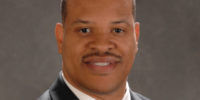 Corey S. Bradford Sr., senior vice president, business affairs, Prairie View A&M University, Prairie View, Texas. An active NACUBO volunteer, Bradford is a past member of the Comprehensive and Doctoral Institutions Council. He has served as a faculty member for the Future Business Officers Program, and also on the advisory committee for NACUBO’s 2016 National Profile of Higher Education Chief Business Officers.
Corey S. Bradford Sr., senior vice president, business affairs, Prairie View A&M University, Prairie View, Texas. An active NACUBO volunteer, Bradford is a past member of the Comprehensive and Doctoral Institutions Council. He has served as a faculty member for the Future Business Officers Program, and also on the advisory committee for NACUBO’s 2016 National Profile of Higher Education Chief Business Officers.
He has served as a source for Business Officer magazine articles and has been featured in a CBO Speaks podcast. Currently, he serves on an informal NACUBO advisory group focused on programming for minority-serving institutions at the NACUBO annual meeting.
In conjunction with NACUBO and SACUBO, Bradford and his colleagues hosted the Business of the University Conference in 2016 and 2017. Conceived by Bradford, this two-day workshop helps business professionals from minority-serving institutions gain a more comprehensive perspective on the business office role.
At Prairie View, Bradford is responsible for the fiscal stewardship of all university assets, totaling more than $450 million. Previously, he held financial administrative positions in the Southern Illinois University System.
Distinguished Business Officer Award
NACUBO’s most prestigious award honors and recognizes chief business officers who have made outstanding contributions to business and financial management in higher education.
The 2018 recipients are:
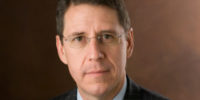 Morgan R. Olsen, executive vice president, treasurer and chief financial officer, Arizona State University, Tempe. Olsen has led financial affairs at public universities throughout the Midwest and Southwest for more than 30 years, having served institutions in Kansas, Illinois, Texas, Indiana, and Arizona. At Arizona State University since 2008, he manages the finances and administration of a $3 billion enterprise at one of the largest public research universities in the country.
Morgan R. Olsen, executive vice president, treasurer and chief financial officer, Arizona State University, Tempe. Olsen has led financial affairs at public universities throughout the Midwest and Southwest for more than 30 years, having served institutions in Kansas, Illinois, Texas, Indiana, and Arizona. At Arizona State University since 2008, he manages the finances and administration of a $3 billion enterprise at one of the largest public research universities in the country.
Between 2008 and 2012, Olsen led the university through a difficult period in which ASU underwent an approximately 50 percent decrease in per-student funding from the state, while at the same time experiencing a 20 percent increase in full-time-equivalent enrollment. He merged and reorganized schools and departments to offset the university budget deficits.
Olsen has a long record of service to NACUBO, WACUBO, and CACUBO. He has served as board chair of NACUBO; a faculty member and presenter for WACUBO; and president, annual meeting host committee chair, and diversity task force member for CACUBO.
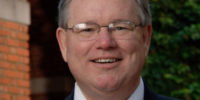 Gerald O. Whittington, senior vice president, business, finance and technology, Elon University, Elon, N.C. In a career of more than four decades, Whittington is best known for his transformative leadership role at Elon University for the past 26 years.
Gerald O. Whittington, senior vice president, business, finance and technology, Elon University, Elon, N.C. In a career of more than four decades, Whittington is best known for his transformative leadership role at Elon University for the past 26 years.
At Elon, he has collaborated with three presidents and two provosts, and has been involved in four strategic plans. He has directed the institution’s growth in the annual operating budget from $38 million to more than $260 million; the endowment from $18 million to $257 million; the campus plant from 690,000 square feet of space to more than 3 million square feet; and the total student enrollment from 3,200 to near 7,000.
With each strategic plan, Whittington has developed innovative financial models to meet the university’s objectives. The book Transforming a College: The Story of a Little-Known College’s Strategic Climb to National Distinction by George Keller notes Whittington’s leadership role.
Beyond the Elon campus, Whittington serves as a mentor in NACUBO’s mentoring program for new chief business officers. He also has been an accreditation reviewer for the Southern Association of Colleges and Schools.
Presentations Throughout the Year
The following individuals were recognized recently at signature workshops for their outstanding efforts and contributions to their respective fields.
Rodney H. Adams Endowment Management Award Presented at the 2018 Endowment and Debt Management Forum in New York City
Sally Staley, investment governance adviser and consultant, and retired chief investment officer at Case Western Reserve University, Cleveland. Staley oversaw an in-house investment staff that managed $1.8 billion of globally diversified endowment and trust assets, $150 million of deferred benefit pension assets, and $1.7 billion in deferred compensation retirement plans.
Prior to her 15 years of service at Case Western, Staley held various investment positions throughout her career, where she managed multimillion dollar pension funds, developed international fixed income portfolios, and authored investing manuals.
Student Financial Services Award Presented at the 2018 Student Financial Services Conference in Orlando
David R. Glezerman, assistant vice president and bursar, Temple University, Philadelphia. Employed at Temple since 1986, Glezerman is responsible for more than $400 million annually in student loans and accounts receivables. He is the author or co-author of several articles and books, including Managing & Collecting Student Receivables (NACUBO, 2016).
Daniel D. Robinson Accounting Award Presented at the 2018 Higher Education Accounting Forum in Kansas City, Mo.
Joan Hagen, associate vice president and university controller, Indiana University (IU), Bloomington. Hagen is one of the most senior finance executives at the university, where she has been employed since 1997. In her role, she helps manage an annual operating budget in excess of $3.5 billion. She has helped IU adopt new accounting and reporting standards and is routinely engaged in university strategic planning initiatives.
The third cohort of NACUBO Fellows made its debut at the NACUBO 2018 Annual Meeting in Long Beach, Calif. This year’s group comprises 11 professionals, following 15 who participated in 2017–18 and 15 in 2016–17. The 12-month leadership development program is designed specifically for individuals who are preparing to become chief business officers in their next role.
As the new Fellows begin their yearlong experience, Business Officer caught up with them to hear what attracted them to the program and what they hope to gain from it.
NANCY ANTUNES, associate vice president for finance, Bentley University, Waltham, Mass.
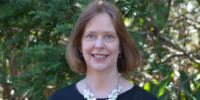 I originally took a part-time position in the internal audit function in my alma mater, primarily for the work-life balance opportunities. Now we are currently midway through a three-year ERP implementation to replace our 27-year-old system. I hope to learn about change management techniques and process improvement that will enable us to get the most benefit from this project, and I also hope to develop my leadership and strategic planning skills. With the other Fellows’ diverse backgrounds and institutions, I expect I will learn a lot from them.
I originally took a part-time position in the internal audit function in my alma mater, primarily for the work-life balance opportunities. Now we are currently midway through a three-year ERP implementation to replace our 27-year-old system. I hope to learn about change management techniques and process improvement that will enable us to get the most benefit from this project, and I also hope to develop my leadership and strategic planning skills. With the other Fellows’ diverse backgrounds and institutions, I expect I will learn a lot from them.
FUN FACT: I’ve been connected with my institution since I was 17 years old—as an undergraduate, graduate student, employee, and parent of an undergraduate.
DEDRIC CARTER, vice chancellor for operations and technology transfer, Washington University in St. Louis
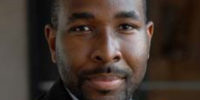 My university will experience significant change in the coming year. Our CampusNext program is transforming the physical landscape of the university, and our chancellor is stepping down after 23 years. A recently named successor will impact the emotional and leadership fabric of the campus. I often find transitions and new beginnings as a time of reflection. In the midst of great change, time to reflect and grow is hard to carve out, and I hope to work on uncovering that time in the fellowship.
My university will experience significant change in the coming year. Our CampusNext program is transforming the physical landscape of the university, and our chancellor is stepping down after 23 years. A recently named successor will impact the emotional and leadership fabric of the campus. I often find transitions and new beginnings as a time of reflection. In the midst of great change, time to reflect and grow is hard to carve out, and I hope to work on uncovering that time in the fellowship.
FUN FACT: I’ve been to all seven continents—twice.
MARY DENEEN, assistant vice president for finance/university controller, Old Dominion University, Norfolk, Va.
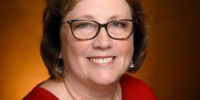 I started out as an officer in the U.S. Navy, then earned a master’s in accounting and became a CPA while on active duty. I wanted to continue in public service after my military career and higher education was a perfect fit. While I have extensive experience executing an approved university budget, I have not done the work to create a budget plan from beginning to end. I am looking forward to learning more about things like different tuition models, budgeting processes, and the work that goes into creating expenditure plans that support the institution’s strategic priorities.
I started out as an officer in the U.S. Navy, then earned a master’s in accounting and became a CPA while on active duty. I wanted to continue in public service after my military career and higher education was a perfect fit. While I have extensive experience executing an approved university budget, I have not done the work to create a budget plan from beginning to end. I am looking forward to learning more about things like different tuition models, budgeting processes, and the work that goes into creating expenditure plans that support the institution’s strategic priorities.
FUN FACT: I love to fly! I routinely bummed rides on search and rescue helicopters when stationed at a naval air station.
DAVID FRANKLIN, deputy chief operating officer, University of the District of Columbia, Washington, D.C.
 I am working to modify and develop the FY19 and FY20 annual budgets, which is quite challenging as the university’s projected enrollment remains stagnant while our personnel and nonpersonnel expenditures continue to increase. Meanwhile, because of the national decline in traditional high school graduates, we must consider expanding our potential reach outside the metro area and even go international in our efforts to mitigate the forecasted decline. I hope to hone the ability to effectively communicate financial data from a diverse perspective; not everyone “speaks finance” fluently.
I am working to modify and develop the FY19 and FY20 annual budgets, which is quite challenging as the university’s projected enrollment remains stagnant while our personnel and nonpersonnel expenditures continue to increase. Meanwhile, because of the national decline in traditional high school graduates, we must consider expanding our potential reach outside the metro area and even go international in our efforts to mitigate the forecasted decline. I hope to hone the ability to effectively communicate financial data from a diverse perspective; not everyone “speaks finance” fluently.
FUN FACT: I participated in an international Tae Kwon Do tournament in Manchester, England, before experiencing the agony of defeat in the finals.
GINNY GOMEZ-LEON, associate vice president for budget and financial planning, the University of Texas Health Science Center at San Antonio
 From the first business class I took in high school, I knew I wanted to be a CPA. A professional accounting career in higher education was unknown to me until I stumbled into an internal auditing role at my university. No longer an auditor, I’ve spent the past 15 years learning the diverse facets that drive university operations and am proud to support the educational and training efforts of our future health-care workforce in Texas. I hope to practice crucial conversations during the Fellows program in order to more confidently influence and cultivate relationships with senior leaders.
From the first business class I took in high school, I knew I wanted to be a CPA. A professional accounting career in higher education was unknown to me until I stumbled into an internal auditing role at my university. No longer an auditor, I’ve spent the past 15 years learning the diverse facets that drive university operations and am proud to support the educational and training efforts of our future health-care workforce in Texas. I hope to practice crucial conversations during the Fellows program in order to more confidently influence and cultivate relationships with senior leaders.
FUN FACT: I become that crazy, loud, obnoxious sideline soccer mom when supporting any of my three children on the pitch.
DIANA HEEREN, associate vice president for finance, Trinity University, San Antonio
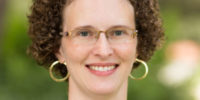 As a sophomore, I had a summer internship in my college’s business office; until then, I had assumed the only career path for accountants was to join a big public accounting firm. My role has changed since I first became a business officer, but the variety of the work is a big part of why I love my job. I am currently leading a small task force to strengthen the policy review and approval process at Trinity. Good policies are the foundation of successful organizations, and I’m hoping that the Fellows program will provide me with new ways of approaching the project.
As a sophomore, I had a summer internship in my college’s business office; until then, I had assumed the only career path for accountants was to join a big public accounting firm. My role has changed since I first became a business officer, but the variety of the work is a big part of why I love my job. I am currently leading a small task force to strengthen the policy review and approval process at Trinity. Good policies are the foundation of successful organizations, and I’m hoping that the Fellows program will provide me with new ways of approaching the project.
FUN FACT: I’m a huge fan of the TV show NCIS—my husband and I never miss an episode!
KURT KISSINGER, associate vice president for finance and business, Pennsylvania State University, University Park, Penn.
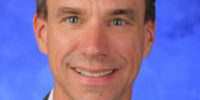 My career path has primarily been in economic development and public/nonprofit administration, and I’ve seen firsthand how higher education and health care can catalyze economic and community development, especially in rural towns. Recently, I’ve been appointed to work with a task force studying the affordability of a Penn State degree, and to explore ways to control costs and enhance revenue while maintaining quality. This assignment brings together many aspects of addressing current challenges in higher education, and I hope the Fellows program will give me insights into how best to work collaboratively across the university’s diverse academic and finance/business stakeholder groups when tackling these challenges.
My career path has primarily been in economic development and public/nonprofit administration, and I’ve seen firsthand how higher education and health care can catalyze economic and community development, especially in rural towns. Recently, I’ve been appointed to work with a task force studying the affordability of a Penn State degree, and to explore ways to control costs and enhance revenue while maintaining quality. This assignment brings together many aspects of addressing current challenges in higher education, and I hope the Fellows program will give me insights into how best to work collaboratively across the university’s diverse academic and finance/business stakeholder groups when tackling these challenges.
FUN FACT: I’m a student pilot completing my training for a private pilot license.
F. WARD LOGAN, deputy chief financial officer, the Citadel, Military College of South Carolina, Charleston, S.C.
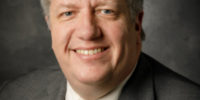 I am a third-generation higher education professional, so you might say that higher education is the “family business.” My institution has about 3,600 students so my background is from the small-school perspective, while many of the other Fellows come from much larger institutions. We are moving toward zero-based budgeting, and I think that working with other Fellows might give me some great insight and tools to assist with that. For most of my career I have been an operational thinker; I would like to work on becoming a more strategic thinker.
I am a third-generation higher education professional, so you might say that higher education is the “family business.” My institution has about 3,600 students so my background is from the small-school perspective, while many of the other Fellows come from much larger institutions. We are moving toward zero-based budgeting, and I think that working with other Fellows might give me some great insight and tools to assist with that. For most of my career I have been an operational thinker; I would like to work on becoming a more strategic thinker.
FUN FACT: I had a blue and gold macaw named Elvis for many years.
DAVID NAKABAYASHI, controller and assistant treasurer, Soka University of America, Aliso Viejo, Calif.
 Soka University is in the construction phase of a new STEM building and additional residence halls, and we will soon initiate a new life sciences concentration. For a small campus, these are huge and exciting changes and I am hoping the Fellows program will help me navigate this growth. I have found higher education to be one of the most collaborative industry groups, and to be able to spend a year working with this cohort of business officers is very exciting.
Soka University is in the construction phase of a new STEM building and additional residence halls, and we will soon initiate a new life sciences concentration. For a small campus, these are huge and exciting changes and I am hoping the Fellows program will help me navigate this growth. I have found higher education to be one of the most collaborative industry groups, and to be able to spend a year working with this cohort of business officers is very exciting.
FUN FACT: There is a common thread linking Ali Khamenei, the Supreme Leader of Iran; Angela Merkel, chancellor of Germany; and me—we were all born on July 17.
BRANDI RENTON, associate vice president for administrative services, University of North Texas, Denton
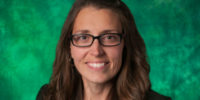 I worked in the auto industry in environmental health and safety, then the satisfaction of supporting people drew me into an HR role in the health care industry. I first took an HR role in higher education, then saw opportunities outside of HR to continue to serve students, faculty, and staff. I’ve been named interim human capital officer for our university system and want to put a strong framework in place to ensure that the HR team is supported and working effectively with system partners, including the system CFO’s team. I’m looking forward to the networking experience in the Fellows program.
I worked in the auto industry in environmental health and safety, then the satisfaction of supporting people drew me into an HR role in the health care industry. I first took an HR role in higher education, then saw opportunities outside of HR to continue to serve students, faculty, and staff. I’ve been named interim human capital officer for our university system and want to put a strong framework in place to ensure that the HR team is supported and working effectively with system partners, including the system CFO’s team. I’m looking forward to the networking experience in the Fellows program.
FUN FACT: My first job at age 14 at a Dairy Queen was the best job ever. I can still make a mean soft-serve ice cream curlicue.
CAROLINE WILHELM, university treasurer, Loyola Marymount University, Los Angeles
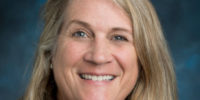 Experiencing how others think, plan, and act will be eye-opening, since I’ve only ever been at LMU. I came here after many years in the for-profit banking and investment industries, and once at LMU I established a brand-new treasury office and helped grow the university’s assets. We are undertaking the largest public debt issuance in our history this fall to support construction of new undergraduate housing, since nearby housing costs have gone up, pushing more students back onto campus. I’d like to learn more about long-term strategic financial planning—the best way to carry out a president’s strategic vision while maintaining a strong financial position.
Experiencing how others think, plan, and act will be eye-opening, since I’ve only ever been at LMU. I came here after many years in the for-profit banking and investment industries, and once at LMU I established a brand-new treasury office and helped grow the university’s assets. We are undertaking the largest public debt issuance in our history this fall to support construction of new undergraduate housing, since nearby housing costs have gone up, pushing more students back onto campus. I’d like to learn more about long-term strategic financial planning—the best way to carry out a president’s strategic vision while maintaining a strong financial position.
FUN FACT: I’ve been a Girl Scout leader for 10 years and took my troop of 12 girls to London during the summer of 2017.



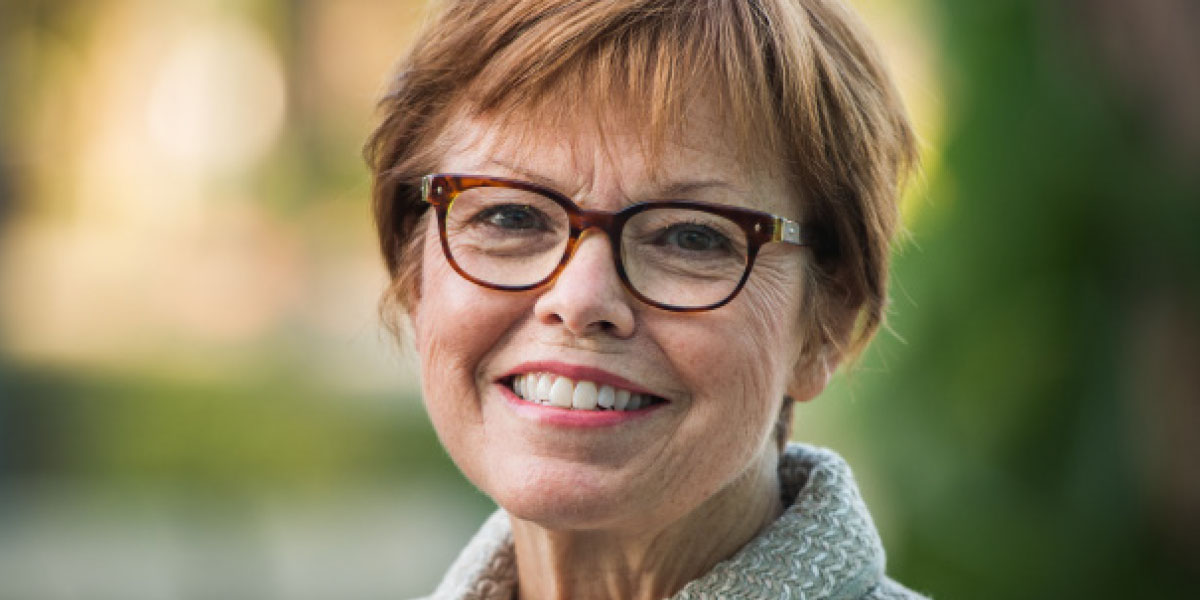
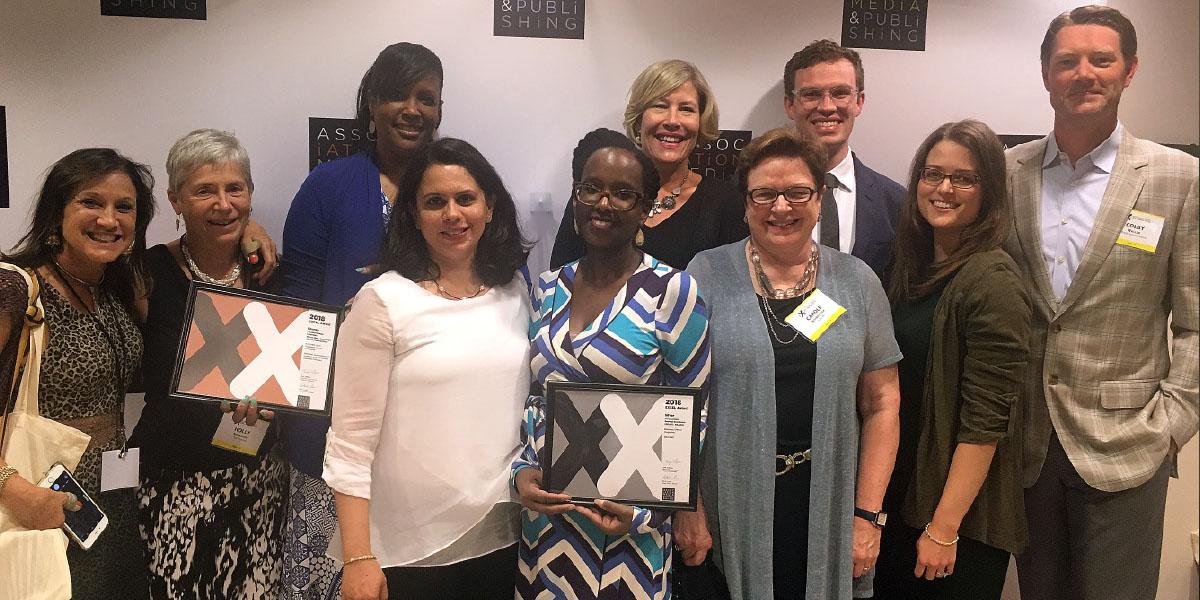
 Each year, the Association for Media and Publishing (AM&P) recognizes
Each year, the Association for Media and Publishing (AM&P) recognizes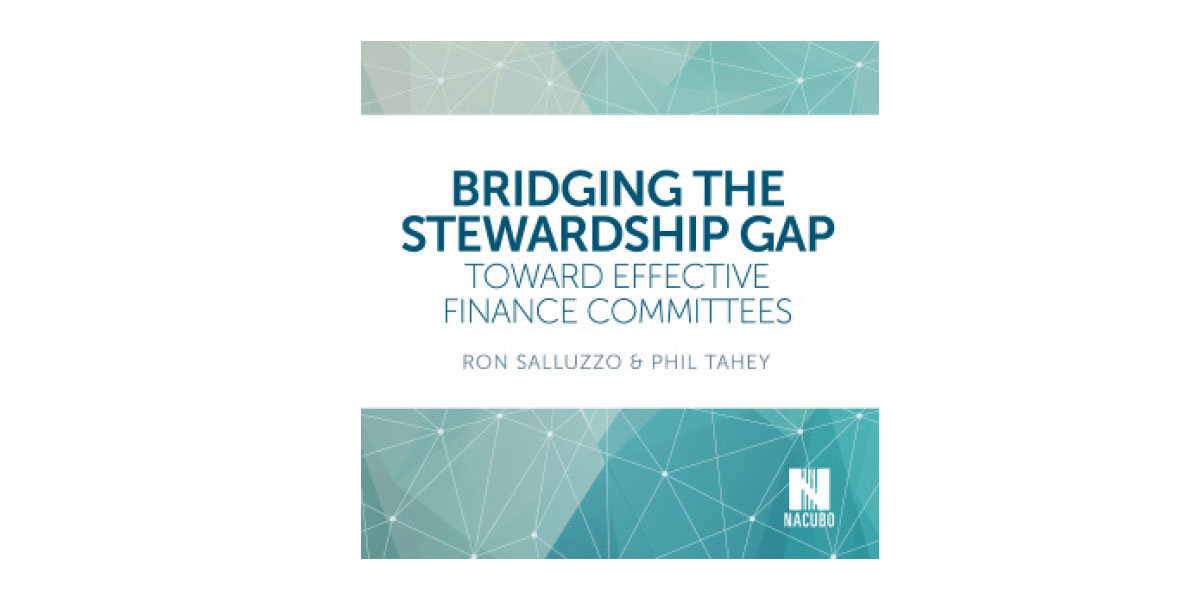
 Corey S. Bradford Sr., senior vice president, business affairs, Prairie View A&M University, Prairie View, Texas. An active NACUBO volunteer, Bradford is a past member of the Comprehensive and Doctoral Institutions Council. He has served as a faculty member for the Future Business Officers Program, and also on the advisory committee for NACUBO’s 2016 National Profile of Higher Education Chief Business Officers.
Corey S. Bradford Sr., senior vice president, business affairs, Prairie View A&M University, Prairie View, Texas. An active NACUBO volunteer, Bradford is a past member of the Comprehensive and Doctoral Institutions Council. He has served as a faculty member for the Future Business Officers Program, and also on the advisory committee for NACUBO’s 2016 National Profile of Higher Education Chief Business Officers. Morgan R. Olsen, executive vice president, treasurer and chief financial officer, Arizona State University, Tempe. Olsen has led financial affairs at public universities throughout the Midwest and Southwest for more than 30 years, having served institutions in Kansas, Illinois, Texas, Indiana, and Arizona. At Arizona State University since 2008, he manages the finances and administration of a $3 billion enterprise at one of the largest public research universities in the country.
Morgan R. Olsen, executive vice president, treasurer and chief financial officer, Arizona State University, Tempe. Olsen has led financial affairs at public universities throughout the Midwest and Southwest for more than 30 years, having served institutions in Kansas, Illinois, Texas, Indiana, and Arizona. At Arizona State University since 2008, he manages the finances and administration of a $3 billion enterprise at one of the largest public research universities in the country. Gerald O. Whittington, senior vice president, business, finance and technology, Elon University, Elon, N.C. In a career of more than four decades, Whittington is best known for his transformative leadership role at Elon University for the past 26 years.
Gerald O. Whittington, senior vice president, business, finance and technology, Elon University, Elon, N.C. In a career of more than four decades, Whittington is best known for his transformative leadership role at Elon University for the past 26 years.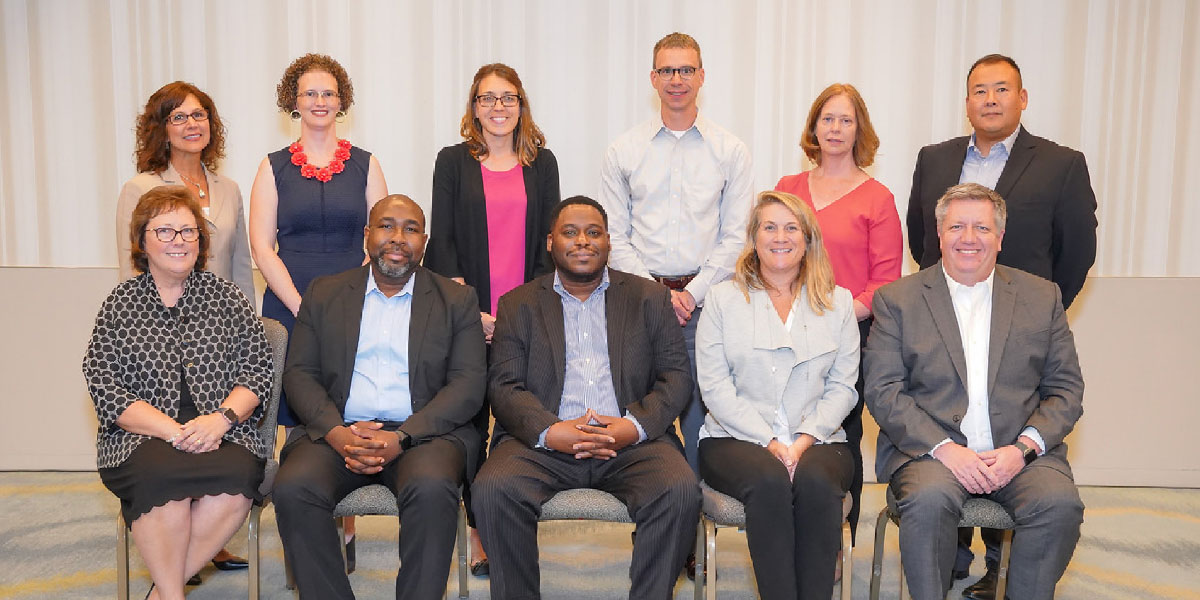
 I originally took a part-time position in the internal audit function in my alma mater, primarily for the work-life balance opportunities. Now we are currently midway through a three-year ERP implementation to replace our 27-year-old system. I hope to learn about change management techniques and process improvement that will enable us to get the most benefit from this project, and I also hope to develop my leadership and strategic planning skills. With the other Fellows’ diverse backgrounds and institutions, I expect I will learn a lot from them.
I originally took a part-time position in the internal audit function in my alma mater, primarily for the work-life balance opportunities. Now we are currently midway through a three-year ERP implementation to replace our 27-year-old system. I hope to learn about change management techniques and process improvement that will enable us to get the most benefit from this project, and I also hope to develop my leadership and strategic planning skills. With the other Fellows’ diverse backgrounds and institutions, I expect I will learn a lot from them. My university will experience significant change in the coming year. Our CampusNext program is transforming the physical landscape of the university, and our chancellor is stepping down after 23 years. A recently named successor will impact the emotional and leadership fabric of the campus. I often find transitions and new beginnings as a time of reflection. In the midst of great change, time to reflect and grow is hard to carve out, and I hope to work on uncovering that time in the fellowship.
My university will experience significant change in the coming year. Our CampusNext program is transforming the physical landscape of the university, and our chancellor is stepping down after 23 years. A recently named successor will impact the emotional and leadership fabric of the campus. I often find transitions and new beginnings as a time of reflection. In the midst of great change, time to reflect and grow is hard to carve out, and I hope to work on uncovering that time in the fellowship. I started out as an officer in the U.S. Navy, then earned a master’s in accounting and became a CPA while on active duty. I wanted to continue in public service after my military career and higher education was a perfect fit. While I have extensive experience executing an approved university budget, I have not done the work to create a budget plan from beginning to end. I am looking forward to learning more about things like different tuition models, budgeting processes, and the work that goes into creating expenditure plans that support the institution’s strategic priorities.
I started out as an officer in the U.S. Navy, then earned a master’s in accounting and became a CPA while on active duty. I wanted to continue in public service after my military career and higher education was a perfect fit. While I have extensive experience executing an approved university budget, I have not done the work to create a budget plan from beginning to end. I am looking forward to learning more about things like different tuition models, budgeting processes, and the work that goes into creating expenditure plans that support the institution’s strategic priorities. I am working to modify and develop the FY19 and FY20 annual budgets, which is quite challenging as the university’s projected enrollment remains stagnant while our personnel and nonpersonnel expenditures continue to increase. Meanwhile, because of the national decline in traditional high school graduates, we must consider expanding our potential reach outside the metro area and even go international in our efforts to mitigate the forecasted decline. I hope to hone the ability to effectively communicate financial data from a diverse perspective; not everyone “speaks finance” fluently.
I am working to modify and develop the FY19 and FY20 annual budgets, which is quite challenging as the university’s projected enrollment remains stagnant while our personnel and nonpersonnel expenditures continue to increase. Meanwhile, because of the national decline in traditional high school graduates, we must consider expanding our potential reach outside the metro area and even go international in our efforts to mitigate the forecasted decline. I hope to hone the ability to effectively communicate financial data from a diverse perspective; not everyone “speaks finance” fluently. From the first business class I took in high school, I knew I wanted to be a CPA. A professional accounting career in higher education was unknown to me until I stumbled into an internal auditing role at my university. No longer an auditor, I’ve spent the past 15 years learning the diverse facets that drive university operations and am proud to support the educational and training efforts of our future health-care workforce in Texas. I hope to practice crucial conversations during the Fellows program in order to more confidently influence and cultivate relationships with senior leaders.
From the first business class I took in high school, I knew I wanted to be a CPA. A professional accounting career in higher education was unknown to me until I stumbled into an internal auditing role at my university. No longer an auditor, I’ve spent the past 15 years learning the diverse facets that drive university operations and am proud to support the educational and training efforts of our future health-care workforce in Texas. I hope to practice crucial conversations during the Fellows program in order to more confidently influence and cultivate relationships with senior leaders. As a sophomore, I had a summer internship in my college’s business office; until then, I had assumed the only career path for accountants was to join a big public accounting firm. My role has changed since I first became a business officer, but the variety of the work is a big part of why I love my job. I am currently leading a small task force to strengthen the policy review and approval process at Trinity. Good policies are the foundation of successful organizations, and I’m hoping that the Fellows program will provide me with new ways of approaching the project.
As a sophomore, I had a summer internship in my college’s business office; until then, I had assumed the only career path for accountants was to join a big public accounting firm. My role has changed since I first became a business officer, but the variety of the work is a big part of why I love my job. I am currently leading a small task force to strengthen the policy review and approval process at Trinity. Good policies are the foundation of successful organizations, and I’m hoping that the Fellows program will provide me with new ways of approaching the project. My career path has primarily been in economic development and public/nonprofit administration, and I’ve seen firsthand how higher education and health care can catalyze economic and community development, especially in rural towns. Recently, I’ve been appointed to work with a task force studying the affordability of a Penn State degree, and to explore ways to control costs and enhance revenue while maintaining quality. This assignment brings together many aspects of addressing current challenges in higher education, and I hope the Fellows program will give me insights into how best to work collaboratively across the university’s diverse academic and finance/business stakeholder groups when tackling these challenges.
My career path has primarily been in economic development and public/nonprofit administration, and I’ve seen firsthand how higher education and health care can catalyze economic and community development, especially in rural towns. Recently, I’ve been appointed to work with a task force studying the affordability of a Penn State degree, and to explore ways to control costs and enhance revenue while maintaining quality. This assignment brings together many aspects of addressing current challenges in higher education, and I hope the Fellows program will give me insights into how best to work collaboratively across the university’s diverse academic and finance/business stakeholder groups when tackling these challenges. I am a third-generation higher education professional, so you might say that higher education is the “family business.” My institution has about 3,600 students so my background is from the small-school perspective, while many of the other Fellows come from much larger institutions. We are moving toward zero-based budgeting, and I think that working with other Fellows might give me some great insight and tools to assist with that. For most of my career I have been an operational thinker; I would like to work on becoming a more strategic thinker.
I am a third-generation higher education professional, so you might say that higher education is the “family business.” My institution has about 3,600 students so my background is from the small-school perspective, while many of the other Fellows come from much larger institutions. We are moving toward zero-based budgeting, and I think that working with other Fellows might give me some great insight and tools to assist with that. For most of my career I have been an operational thinker; I would like to work on becoming a more strategic thinker. Soka University is in the construction phase of a new STEM building and additional residence halls, and we will soon initiate a new life sciences concentration. For a small campus, these are huge and exciting changes and I am hoping the Fellows program will help me navigate this growth. I have found higher education to be one of the most collaborative industry groups, and to be able to spend a year working with this cohort of business officers is very exciting.
Soka University is in the construction phase of a new STEM building and additional residence halls, and we will soon initiate a new life sciences concentration. For a small campus, these are huge and exciting changes and I am hoping the Fellows program will help me navigate this growth. I have found higher education to be one of the most collaborative industry groups, and to be able to spend a year working with this cohort of business officers is very exciting. I worked in the auto industry in environmental health and safety, then the satisfaction of supporting people drew me into an HR role in the health care industry. I first took an HR role in higher education, then saw opportunities outside of HR to continue to serve students, faculty, and staff. I’ve been named interim human capital officer for our university system and want to put a strong framework in place to ensure that the HR team is supported and working effectively with system partners, including the system CFO’s team. I’m looking forward to the networking experience in the Fellows program.
I worked in the auto industry in environmental health and safety, then the satisfaction of supporting people drew me into an HR role in the health care industry. I first took an HR role in higher education, then saw opportunities outside of HR to continue to serve students, faculty, and staff. I’ve been named interim human capital officer for our university system and want to put a strong framework in place to ensure that the HR team is supported and working effectively with system partners, including the system CFO’s team. I’m looking forward to the networking experience in the Fellows program. Experiencing how others think, plan, and act will be eye-opening, since I’ve only ever been at LMU. I came here after many years in the for-profit banking and investment industries, and once at LMU I established a brand-new treasury office and helped grow the university’s assets. We are undertaking the largest public debt issuance in our history this fall to support construction of new undergraduate housing, since nearby housing costs have gone up, pushing more students back onto campus. I’d like to learn more about long-term strategic financial planning—the best way to carry out a president’s strategic vision while maintaining a strong financial position.
Experiencing how others think, plan, and act will be eye-opening, since I’ve only ever been at LMU. I came here after many years in the for-profit banking and investment industries, and once at LMU I established a brand-new treasury office and helped grow the university’s assets. We are undertaking the largest public debt issuance in our history this fall to support construction of new undergraduate housing, since nearby housing costs have gone up, pushing more students back onto campus. I’d like to learn more about long-term strategic financial planning—the best way to carry out a president’s strategic vision while maintaining a strong financial position.